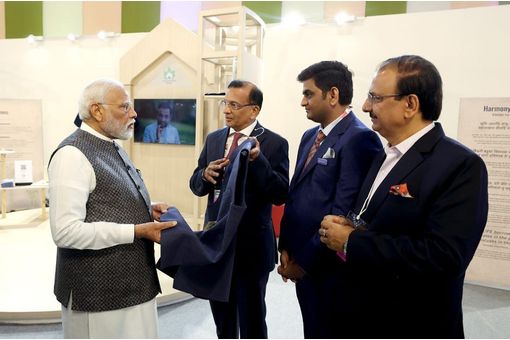Interviews
Next generation business leaders radically optimistic
21 Jun '16
5 min read
there are interesting differences too, in how the two prioritise stakeholder groups. Both agree that customers and clients have the biggest influence on corporate strategy, and that governments and regulators are important. However the media are seen as much more significant by AIESEC leaders (74 per cent) compared to CEOs (25 per cent), and there is a similar pattern with local communities (52 per cent versus 27 per cent), the general public (50 per cent versus 30 per cent), and NGOs (40 per cent versus 9 per cent).
This suggests the young leaders have a much broader perception of what communicating to a wider stakeholder audience means in 2016. In particular how technology has made communicating and connecting with stakeholders possible instantaneously, the challenges that presents to how companies are viewed, and how organisations need to adapt as a result.
Nora Wu, PwC's Global Human Capital Leader says, “Tomorrow's leaders look for opportunity but they are not naïve about risk. They care about wider social and environmental issues and understand how the accelerating pace of technological advances are changing stakeholder expectations. While pay and benefits are important, an organisation's culture and values are often even more important. Millennials, want to be proud of their employer – to feel their company's values match their own and the work they're doing is worthwhile and contributing to a broader purpose.
“It's important to focus on the pipeline of leaders for tomorrow, while continuing to develop the skills and capability of the workforce of today.”
Alongside the questions included in the CEO Survey, AIESEC respondents were also asked about their views of what defines leadership, how to nurture it, and how it's changing.
These young leaders are clearly believers in nurture not nature: 64 per cent said the education system is the single most important factor in shaping and preparing young people for leadership roles in the future. Despite this, 70 per cent believe the education system in their own country is failing to fully equip students with the skills they need to survive and thrive in the digital age. (SH)
This suggests the young leaders have a much broader perception of what communicating to a wider stakeholder audience means in 2016. In particular how technology has made communicating and connecting with stakeholders possible instantaneously, the challenges that presents to how companies are viewed, and how organisations need to adapt as a result.
Nora Wu, PwC's Global Human Capital Leader says, “Tomorrow's leaders look for opportunity but they are not naïve about risk. They care about wider social and environmental issues and understand how the accelerating pace of technological advances are changing stakeholder expectations. While pay and benefits are important, an organisation's culture and values are often even more important. Millennials, want to be proud of their employer – to feel their company's values match their own and the work they're doing is worthwhile and contributing to a broader purpose.
“It's important to focus on the pipeline of leaders for tomorrow, while continuing to develop the skills and capability of the workforce of today.”
Alongside the questions included in the CEO Survey, AIESEC respondents were also asked about their views of what defines leadership, how to nurture it, and how it's changing.
These young leaders are clearly believers in nurture not nature: 64 per cent said the education system is the single most important factor in shaping and preparing young people for leadership roles in the future. Despite this, 70 per cent believe the education system in their own country is failing to fully equip students with the skills they need to survive and thrive in the digital age. (SH)
Fibre2Fashion News Desk – India
Popular News
Leave your Comments
Editor’s Pick
Bijou Kurien
Retailers Association of India (RAI)
Debin Mao
Qingdao Amino Materials Technology Co. Ltd.
































-Ltd..jpg?tr=w-120,h-60,c-at_max,cm-pad_resize,bg-ffffff)





.jpg?tr=w-120,h-60,c-at_max,cm-pad_resize,bg-ffffff)
.jpg?tr=w-120,h-60,c-at_max,cm-pad_resize,bg-ffffff)






